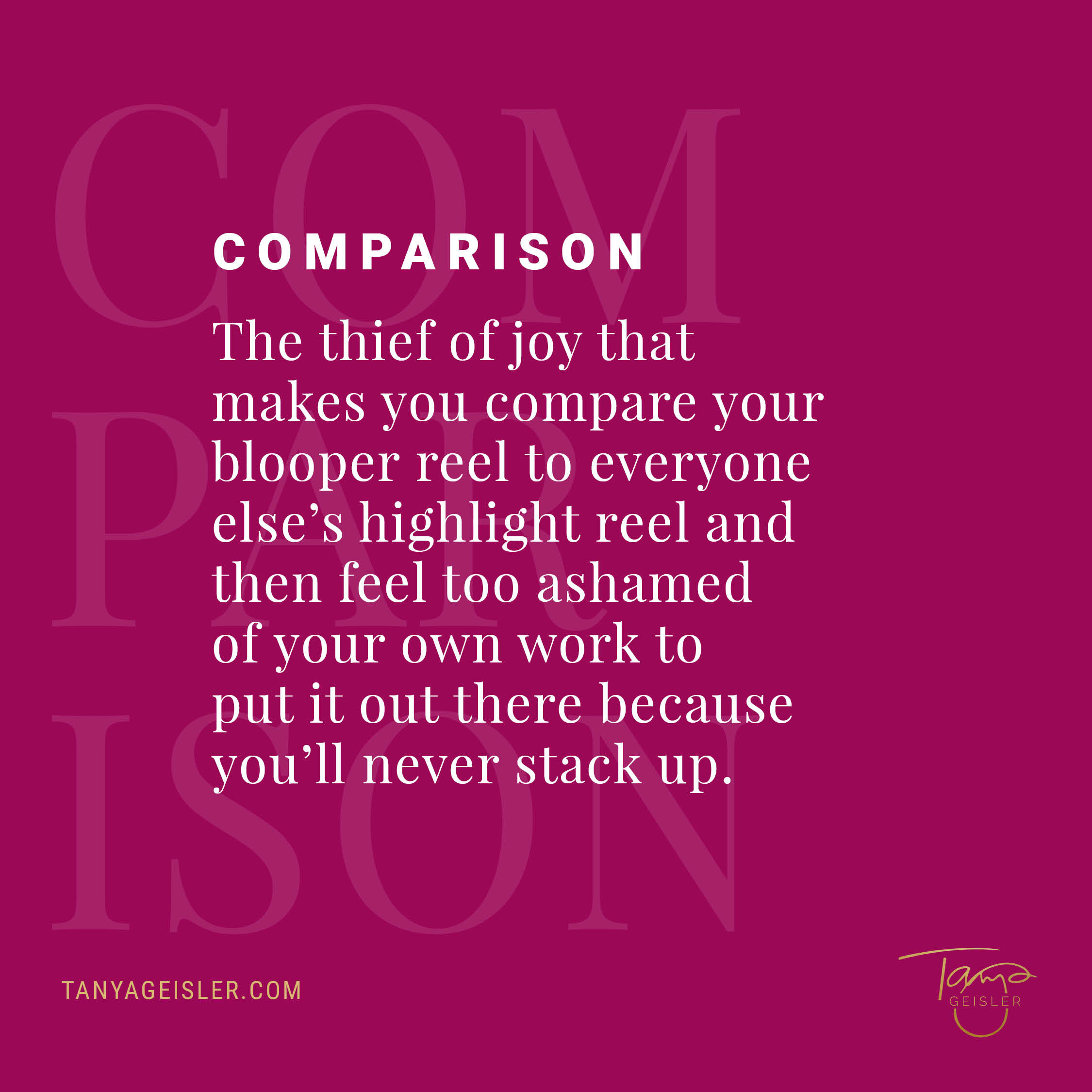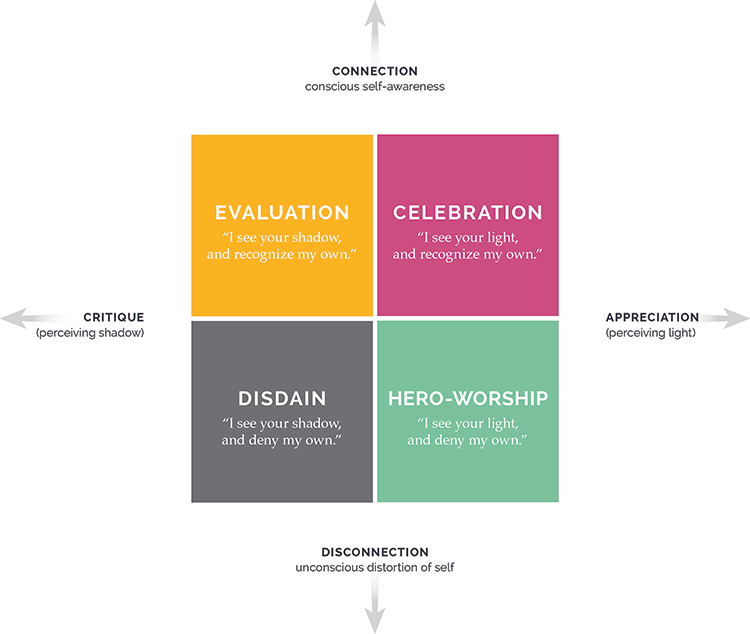How to Stop Comparing Yourself to Others — And Why It Matters
In my career, I have talked to a lot of people about comparison – how to stop comparing yourself to others, why it matters, and how we go about transforming it.
Compulsive comparison is a stumbling block for so many – especially those of us who struggle with the Imposter Complex (here’s why I say Imposter Complex instead of imposter syndrome).
So let’s talk about how comparison works — and how to stop comparing yourself to others.
Why Comparison Matters
In my extensive (professional AND – ahem – personal) research, I have come to understand that comparison tops pretty much any other of the six behavioural traits of the Imposter Complex that get in the way of our progress (again... professional AND personal).
Google “quotes about comparison” the next time you have a spare hour to kill to see just how ubiquitous it is.
When I’m invited to do interviews about comparison, the invites are typically framed as “the #1 issue my listeners are grappling with.” It affects SO MANY OF US. (And while it affects each of us differently, if we’re being honest, most of us have been brought to our knees by its force on occasion.)
If you allow it, you can stop comparing yourself to others and see where comparison may be...
stopping you from creating what you want
preventing you from activating your calling
making you feel (and play) small for fear of projections
keeping you from expressing yourself fully
causing you to disown your power (and hand it over to others).
It matters. Oh, how it matters. Only YOU can say for yourself just how much it matters – personally and professionally.
How to Stop Comparing Yourself to Others
It’s useful to think about comparison as a three-dimensional structure. (And this one that my friend and colleague Lauren Bacon created for our program Beyond Compare, is exceptional.)
On the one plane, we compare up (looking up to others in a way that “others” us from them) and we compare down (judging and disdaining others in a way that, you guessed it, “others” us from them).
On the other plane, we compare ourselves to others AND we experience others comparing themselves to us. Up or down. Whether we’ve been put on a pedestal or are judged harshly, the impact of “othering” once again endures.
It looks like this:
The goal is to move us from Disdain to Evaluation and from Hero-Worship to Celebration.
How to Stop Comparing Yourself to Your “Heros”
Generally, when people want to know how to stop comparing themselves to others, they want to stop the sort of “compare and despair” that happens when we scroll Instagram too long. You know what I mean — when all of the sudden we’re convinced that our business will never be as good as theirs, our dinners will never look as good as theirs, and our thighs… Well. Best not to even go there!
But what if you could stop comparing yourself to those people and instead celebrate them for what they have accomplished and inspired in you? That’s Celebration.
To understand Celebration, think of a beloved teacher, close ally, or dear friend – anyone who inspires us to say, “I am better because of you.” They help us face and overcome challenges by showing us our own strengths.
The energy here is a kind of curious equanimity: We notice difference and similarity and make the most of both. We don’t value a person more or less because they possess a particular trait; we simply appreciate it, and ask how we can celebrate it, while also celebrating ourselves.
To shift from Hero-Worship to Celebration, consider the following questions:
Who do I admire?
What do I admire about them?
When I consider these people, do I notice any common threads? If so, what are they?
Now, experiment with looking at those strengths and gifts, and telling yourself that you have the full potential to embody them. What would it look like if you allowed those parts of yourself more room?
How to Stop Judging Others
When we’re judging someone else’s work or behaviour, we often end up in disdain. This is comparison, too! But instead of making ourselves feel bad for not living up to an ideal, we are making ourselves feel better by marking how we are “superior.”
But if you want to stop judging, you can work on moving into evaluation. Evaluation emerges when we choose to engage critically with someone’s work or behaviour without making them, as a person, wrong. Respectful debate, thoughtful performance assessments, engaging a beloved friend in a difficult conversation: all of these exist in evaluation territory.
If you catch yourself stuck in Disdain territory, try this reflection to shift you into Evaluation:
Who do I judge for doing what I’m embarrassed to admit I do too? What’s the behaviour I’m ashamed of?
Who do I judge for behaving in ways I secretly wish I could “get away with?" What do I fear would happen if I behaved that way, too?
Where are the qualities that I disdain holding me back?
What could I do if I gave myself permission to embody those qualities?
Of course, this work has many more layers, but this is a place to start.
The important “fix” to stop comparing yourself
You may have noticed that the “fix,” in each case, is to quit focusing your energy on the other person and direct it squarely towards yourself. While it may feel like it’s the other person evoking a response in you, the reality is that your response is entirely within your control.
You can choose Hero-Worship or Celebration, Disdain or Evaluation.
That’s the freedom that comes from choice. The freedom to create. The freedom to follow your own calling. The freedom to own your authority and succeed on your own terms.
Because we can taste that freedom. And we want it for you.
Click here for my free training:
Five ICONIC shifts leaders use to overcome Imposter Complex.


